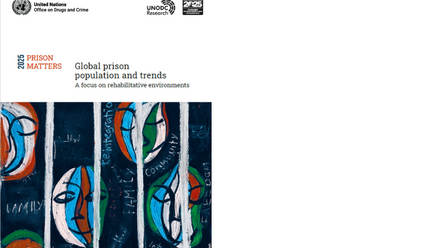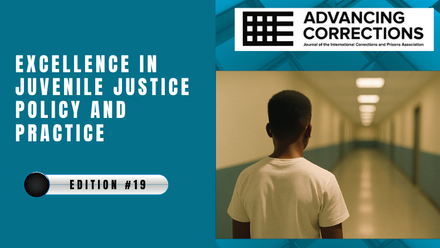Rwanda’s Correctional Service: Prioritising Rehabilitation and Reintegration
__________________________________________________________________
While challenges remain, RCS is actively addressing issues like overcrowding and skills gap through innovative programmes and international collaboration.
What are the most significant challenges confronting Rwanda's prison system today, and how is the Rwanda Correctional Service prioritizing its response to these issues?
RCS continues to achieve its mandate however, there are some challenges that persist. These include overcrowding, developments on rehabilitation and reintegration programs and correctional officer training. To ensure these challenges are addressed effectively, RCS are taking key measures. Here’s how:
Reducing overcrowding:
- Community service: This alternative penalty allows individuals to serve their sentence while contributing to public works and learning new skills.
- Halfway houses: The introduction of Halfway Social Reintegration Centres supports inmates nearing release (6-12 months remaining) by facilitating family connections, job searches and entrepreneurship opportunities.
- Alternative sentencing: RCS promotes services such as plea bargaining, e-courts and conditional release to reduce prisons population.
Improving correctional facilities:
-
Infrastructure: RCS is committed to expanding, rehabilitating and maintaining the infrastructure for correctional facilities with the aim to improve on the standards of living for all categories of inmates.
Policy focus:
- Correction over punishment: RCS prioritises a correctional approach, embedded in the nation’s laws, that focuses on rehabilitation and integration.
What are the key achievements or ongoing initiatives of the Rwanda Correctional Service?
Rwanda Correctional Services (RCS) has a number of key achievements and initiatives that stand out. These include:
- Human rights and management: RCS prioritises human treatment of all inmates, implementing policies and strategies to effectively maintain respect at all times. Beyond policies, RCS actively participates in UN peacekeeping missions, international correctional organisations, and regional forums further solidifying their approach.
- Facilities and Infrastructure: as mentioned above, RCS is committed to enhancing living conditions for all inmates, this means providing separate facilities for women, men, and minors according to their needs.
- Health and wellbeing: All inmates have access to adequate healthcare. This includes young children living with incarcerated mothers who benefit from early childhood development programs. RMC also provides kitchen gardens allowing nutritional support, particularly for vulnerable inmates such as women living with their children and the elderly.
- Technology and innovation: Using integrated electronic cases management systems for efficient inmates file storing, maintenance and monitoring.
- Education and training: RMC offers vocational training centres, within facilities for officer and access to formal education and vocational training for Juvenile inmates (Primary and Secondary program).
- Reconciliation: RCS promotes initiatives fostering unity and reconciliation between genocide and perpetrators and survivors.
How essential is international collaboration and engagement through organizations like the International Corrections and Prisons Association (ICPA) in addressing these challenges?
By exchanging best practices and challenges with different correctional professional across the world, Rwanda Correctional Service improves its programs, contributing to lower recidivism rates, which largely benefits the criminal justice system collectively. Collaboration with various organisations provides access to knowledge and skills related o technological advancement in offenders reintegration. This leads to better performance in achieving RCS’s mandate of successfully rehabilitating and reintegrating into the community as law abiding citizens.
RCS staff and officials benefit from international and regional collaboration, especially in attending like ICPA meetings and conferences. This leads to networking opportunities with highly experienced personnel in the field of criminal justice and Correctional/Prison Systems. In doing so, their capabilities in professionally executing their duties and responsibilities of rehabilitation and reintegration are enhanced.
What benefits would you emphasize to encourage others to join the ICPA?
Joining ICPA offers numerous benefits for corrections professionals. It provides opportunities to expand your professional network by connecting with colleagues from around the world and engaging in a dynamic forum to exchange ideas and best practices. Members also enjoy valuable benefits, including training and development opportunities, which can be shared with key colleagues and staff at all levels of your organisation (depending on level of membership).
Are you ready to join ICPA?


